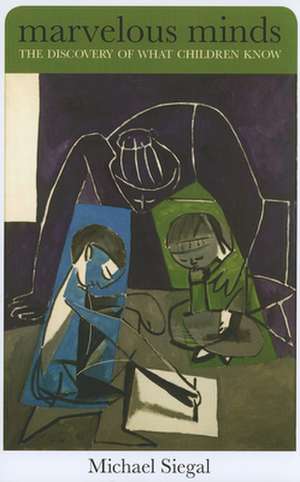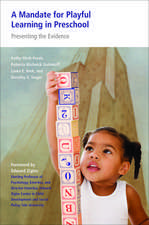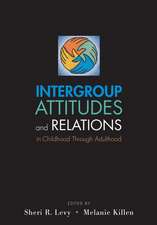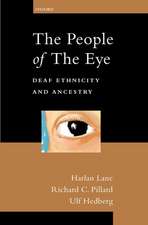Marvelous Minds: The discovery of what children know
Autor Michael Siegalen Limba Engleză Paperback – 3 feb 2010
Preț: 171.41 lei
Nou
Puncte Express: 257
Preț estimativ în valută:
32.80€ • 34.12$ • 27.08£
32.80€ • 34.12$ • 27.08£
Carte tipărită la comandă
Livrare economică 11-22 aprilie
Preluare comenzi: 021 569.72.76
Specificații
ISBN-13: 9780199582884
ISBN-10: 0199582882
Pagini: 272
Dimensiuni: 139 x 215 x 16 mm
Greutate: 0.35 kg
Editura: Oxford University Press
Colecția OUP Oxford
Locul publicării:Oxford, United Kingdom
ISBN-10: 0199582882
Pagini: 272
Dimensiuni: 139 x 215 x 16 mm
Greutate: 0.35 kg
Editura: Oxford University Press
Colecția OUP Oxford
Locul publicării:Oxford, United Kingdom
Recenzii
...a useful and enlightening publication...
Siegal provides interesting slants that give evidence to back-up his assertions that children are potentially much more knowledgeable about their surroundings than had hitherto been supposed...a useful and enlightening publication that adds to the literature in the area of the development of children's knowledge and understanding.
Michael Siegal has written a searching analysis of how children's knowledge develops in a variety of domains, including cosmology, medicine, biology, and number. He repeatedly questions the idea that children undergo any radical conceptual change in noting that psychologists all too easily underestimate - or even confuse - young children with their questions. At the same time, he emphasizes how children can learn about the physical and the mental world via conversation. Aveteran globetrotter himself, Michael Siegal also highlights how dramatically the world's cultures vary in their nurturance of children's early cognitive competencies. Students and researchers who want to examine cognitive development from a global perspective would do well to have this optimistic, challengingbook in their backpack.
In this lucidly written book, Michael Siegal weaves together a comprehensive yet highly accessible picture of how children comes to grips with the worlds around them, be it social or physical, internal or external. Through his careful analysis of the mountains of scientific evidence accumulated in the last five decades, Siegal reveals to us the understanding young children have about cosmology, mathematics, biology, psychology, and many other subject matters that have beenconventionally thought to be late developmental milestones. You cannot help but agree with Siegal that young children have marvelous minds, indeed!
An insightful book that takes a critical look at children's knowledge and understanding of different concepts from around the world. Michael Siegal explores how culture can influence children's understanding from an early age and the impact that school curriculum and guidelines can have, especially in early childhood. It is a fascinating book that helps teachers to think creatively and critically about the way they teach and the assumptions they make.
Siegal provides interesting slants that give evidence to back-up his assertions that children are potentially much more knowledgeable about their surroundings than had hitherto been supposed...a useful and enlightening publication that adds to the literature in the area of the development of children's knowledge and understanding.
Michael Siegal has written a searching analysis of how children's knowledge develops in a variety of domains, including cosmology, medicine, biology, and number. He repeatedly questions the idea that children undergo any radical conceptual change in noting that psychologists all too easily underestimate - or even confuse - young children with their questions. At the same time, he emphasizes how children can learn about the physical and the mental world via conversation. Aveteran globetrotter himself, Michael Siegal also highlights how dramatically the world's cultures vary in their nurturance of children's early cognitive competencies. Students and researchers who want to examine cognitive development from a global perspective would do well to have this optimistic, challengingbook in their backpack.
In this lucidly written book, Michael Siegal weaves together a comprehensive yet highly accessible picture of how children comes to grips with the worlds around them, be it social or physical, internal or external. Through his careful analysis of the mountains of scientific evidence accumulated in the last five decades, Siegal reveals to us the understanding young children have about cosmology, mathematics, biology, psychology, and many other subject matters that have beenconventionally thought to be late developmental milestones. You cannot help but agree with Siegal that young children have marvelous minds, indeed!
An insightful book that takes a critical look at children's knowledge and understanding of different concepts from around the world. Michael Siegal explores how culture can influence children's understanding from an early age and the impact that school curriculum and guidelines can have, especially in early childhood. It is a fascinating book that helps teachers to think creatively and critically about the way they teach and the assumptions they make.











